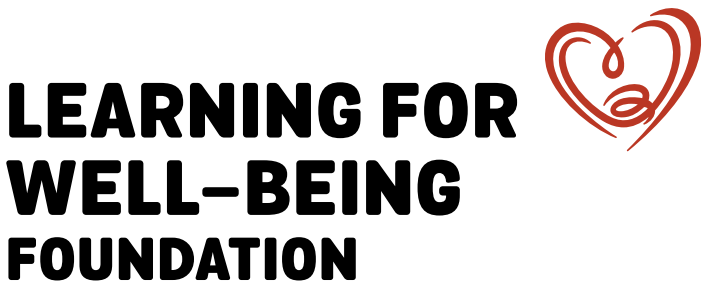L4WB Framework
Well-being
Well-being is realising one’s unique potential through physical, emotional, mental, and spiritual development in relation to self, others, and the environment.
Our definition of well-being acknowledges the complexity of the world around the person, but also inside the person.


Four Perspectives (Wholeness)
On the side is a visual representation of this definition of well-being:
At the centre is unique potential, the centralising impulse which provides purpose, meaning and direction to each of our lives.
Unique potential is expressed through four perspectives by are represented three aspects of development — mental, emotional and physical— and the relationship with a spiritual dimension experienced through “a sense of connection to all things, including the natural and manmade environments”.
The spiritual dimension is considered as pervasive and is therefore indivisible; it both embraces and imbues the threefold nature of life (as expressed through the mental, emotional and physical aspects).
Core Capacities
Based on decades of exploration and practice with individuals and groups, we identified nine core capacities that help us deepen our relationship with ourselves, others and the environment.
We consider core capacities as distinct cornerstones of life skills and competences. The differences between them include a process-orientation and a focus on natural and individualised preferences explored through practice.
Each capacity can be understood through physical, emotional, mental and spiritual perspectives
Relaxing
Power to ease tensions in thoughts, feelings and body
Observing
Power to place attention, widely and closely
Listening
Power to connect and tune in to what surrounds
Inquiring
Power to seek what can expand knowledge and action
Reflecting
Power to offer another view
Sensing
Power to know something that is not visible
Empathising
Power to know (see and feel) with and through others
Embodying
*Power to activate your senses, and transform them into knowledge*
Discerning Patterns
Power to connect to the whole, and its parts
Principles for Action
From the framework, we have divised the following principles for action which we offer as a common language to guide children, adults and institutions in creating together environments that place well-being at the heart of all their endeavours.
- Wholeness: Cultivate expressions of wholeness in people, communities and societies: creating environments for physical, emotional, mental and spiritual development through the practice of core capacities.
- Purpose: Allow the unfolding of unique potential in individuals and communities: nurturing behaviours’ that provide purpose, meaning and direction in every activity.
- Diversity: Respect individual uniqueness and diversity: encouraging diverse perspectives and multiple expressions.
- Relationships: Emphasise the quality of relationships: focusing on process and seeing the other as a competent partner.
- Participation: Support the active participation of those concerned, involving everyone in decisions that impact them.
- Systems: Recognise nested systems as influencing one another: providing opportunities for different sectors and disciplines to work together.
- Feedback: Ensure conditions for feedback and self-organisation: measuring what matters for the well-being and sustainability of any system.

